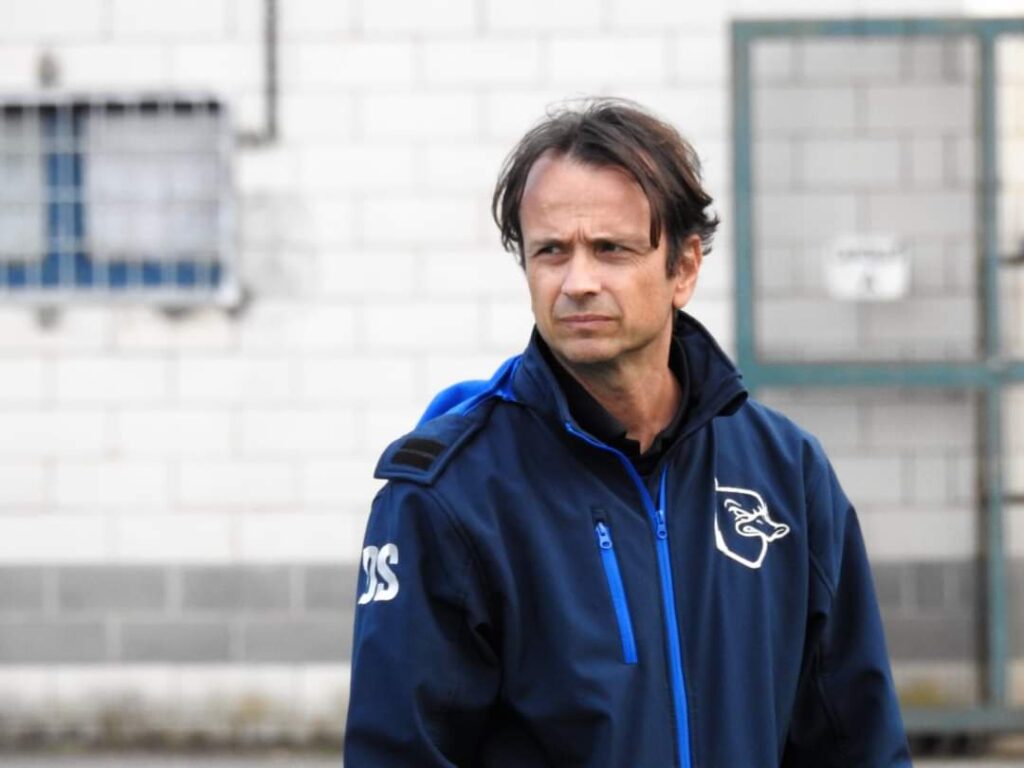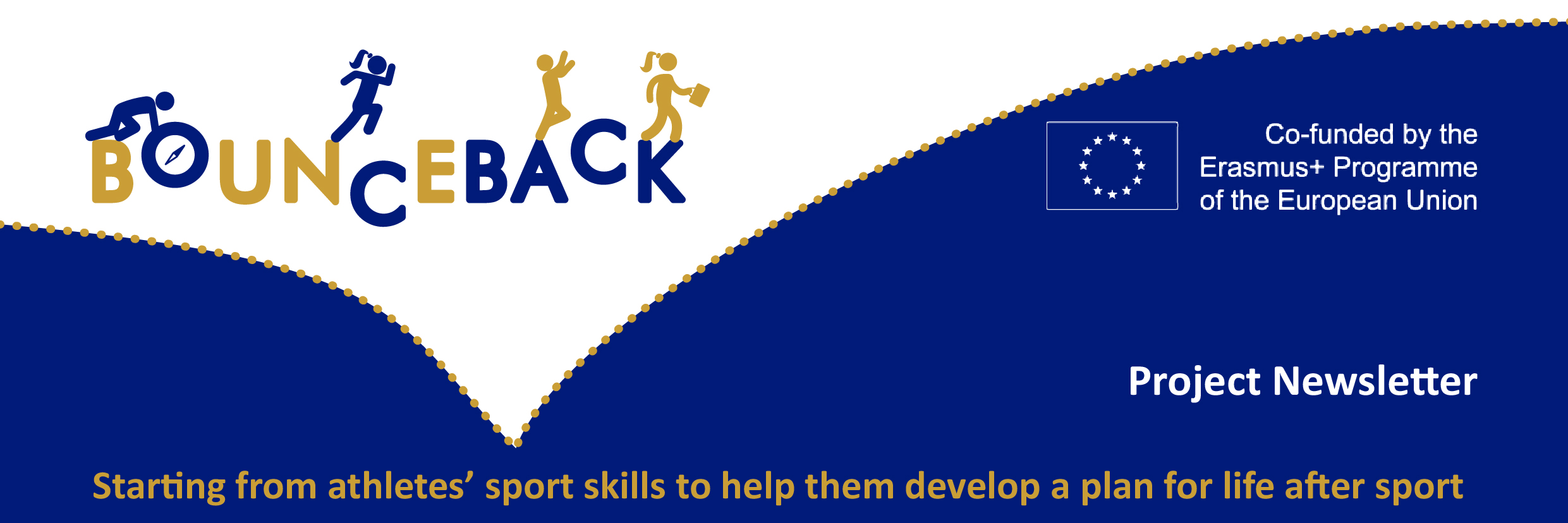Newsletter Issue #7 – Special Issue
Pilot trainings in Hungary, Deep dive on the Bounceback trainingItaly and Greece – Spring/Summer 2022
The AEK Athletic Club (AEK), the A.S.D. Società Sportiva Lazio Karate (LAZIO) and the University and Student Athletics Club of Veszprém (VEDAC) together with the University of Pannonia (UP) organized pilot training sessions for a total number of 100 veteran athletes to help them achieve the success they need in the entrepreneurial and business world in the spring/summer 2022. This special issue of the Bounceback Project newsletter is to provide our readers with a deep dive on the training process including interviews with one of the trainers and one trainee.
Interview with a trainer: Fabrizio Cupellini, General Manager, Lazio American Football

What is your speciality and why do you reckon your experience was relevant in this role?
My name is Fabrizio Cupellini, I am the General Manager for Lazio Football and, currently the President of The FIDAF Lazio. I have over 20 years experience in sports management and have been a public speaker on various sports related subjects for more than 15 years. I am very familiar with the scope of this work; I believe my experience in communication and team building has been important as a facilitator, but the relevant asset I brought to the table was the work I did I for the FIF in the early 2000s about transferable skills from youth sports to school.
What is your opinion on dual careers? Why do you think they matter and when it would be most crucial to focus in them?
My sports experience mutuates from the United States school sports environment; over the years I was able to appreciate fully the benefits of the student-athlete concept. Decision about a professional carrier in sports happen relatively early in life and narrow the perception of the athlete’s own abilities, creating barriers for choices that will come later in life. It is fundamental to keep the athletes in a dual carrier path as long as possible and, even during their sports days, help them acquire a growth mentality outside of the sector they operate in. The skills that made athletes successful are transferable to other working environments.
What did you take home of this experience?
It is always a privilege to discuss such crucial topics with people. As a facilitator/teacher I am mostly a student; Bounceback has been a tool for me to refine ideas, concepts, communication patterns with persons that share my passion. I am thankful for this opportunity and looking forward to help again.
Interview with a trainee
What sports do you play? Are you amateur or professional? What results are you most proud of?
My sport is triathlon. I’ve been doing it for 4 years in an amateur level. Triathlon is the special sport where you can push your limits in 3 wonderful sports.
In each sport separately, I achieved surprising results at different distances, which all showed my development. I am most proud of my results in the half-distance triathlon – where the time result was not so great – but I reached the finish line cheerfully.
Do you have any experience in the entrepreneurial world?
I work for a food company as a financial manager. My job has a wild range of tasks, I am constantly gathering business experience.
What is your opinion on dual careers? Why do you think they matter and when it would be most crucial to focus in them?
At the level of professional athletes, it is important to be aware of the specialties of a dual career. The question of a dual career should be consciously addressed at the beginning of a sports career.
How would you describe the training session and the Bounceback instruments tested? Do you think there’s potential for them to be adopted at a larger scale?
Useful and interesting training material has been compiled. We heard/discussed many thought-provoking topics during the training. I think there is a demand for it. I am keeping my fingers crossed for the project team to find an opportunity to adopt the Bounceback training material at a larger scale.
What did you take home of this experience?
Interesting stories about athletes, perseverance, and lessons that I have not known so far.
Participants’ feedback
‘I think that the biggest benefit of this training is that it starts the athletes thinking consciously about what area they should be successful in their civil life after sport, and they should take steps to achieve this during their sport career.’
‘A training is always a good opportunity to improve, and this is no different for athletes, who are very valuable people with good competences, but now they want to develop them in a different area. This is what I think the Bounceback training has given to the participants. I really enjoyed it and they seemed to like the series as well.’
‘We have come to the end of a very interesting training series. I believe that we have been able to help the athletes and that we can further develop the platform from the feedback and comments we have received from them. Bounceback!’
‘One of the very important lessons of this training for me was that if all young people continue as they started, it seems that in the future we will welcome a lot of ethical entrepreneurs coming from the world of sport.’
‘This training has opened my eyes to how much potential I have outside of sport and what skills I have and what I can improve on, so it’s been very useful.’
‘Sport has strengthened certain skills and competences in me and this training has helped me to organise them in myself and use them more consciously, both in my life and at work.’
Bounceback Athletes
Developing an innovative learning approach to facilitate the integration of veteran/retired athletes into employment, business and entrepreneurship
www.bouncebackathletes.eu


